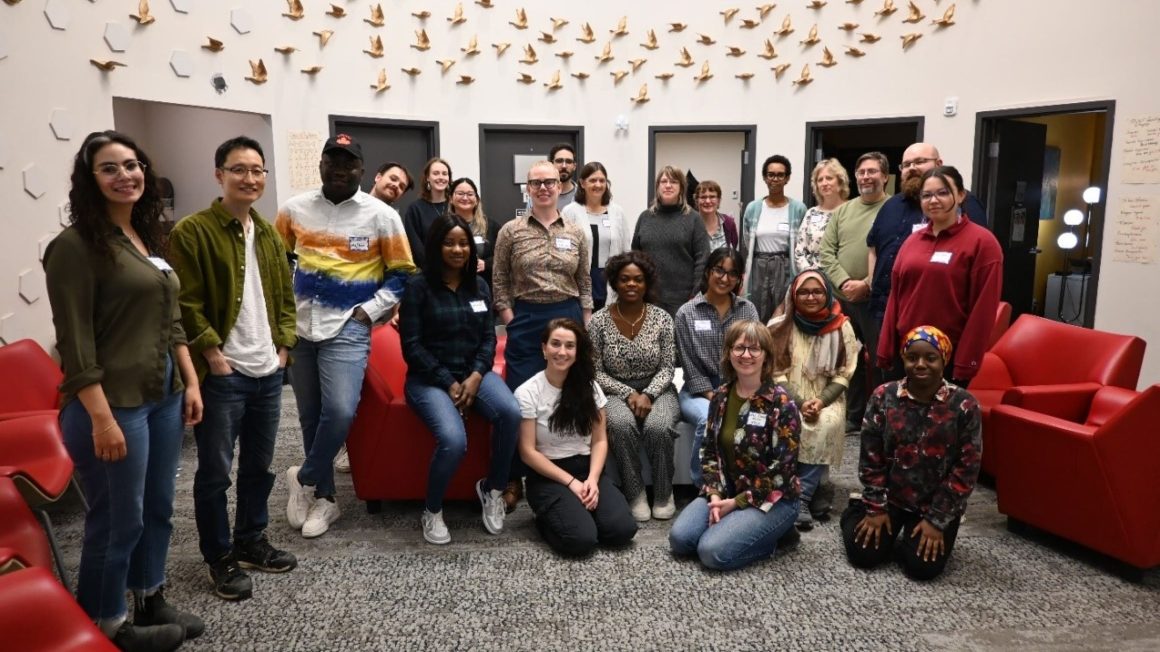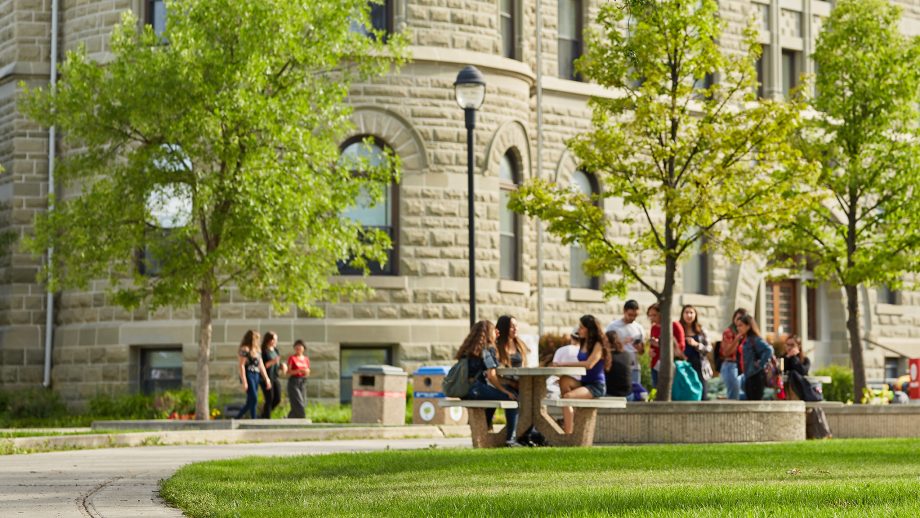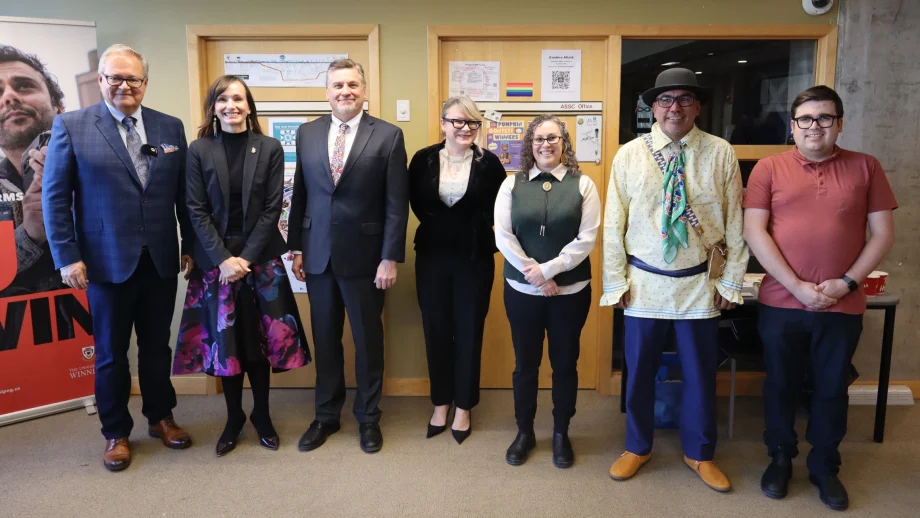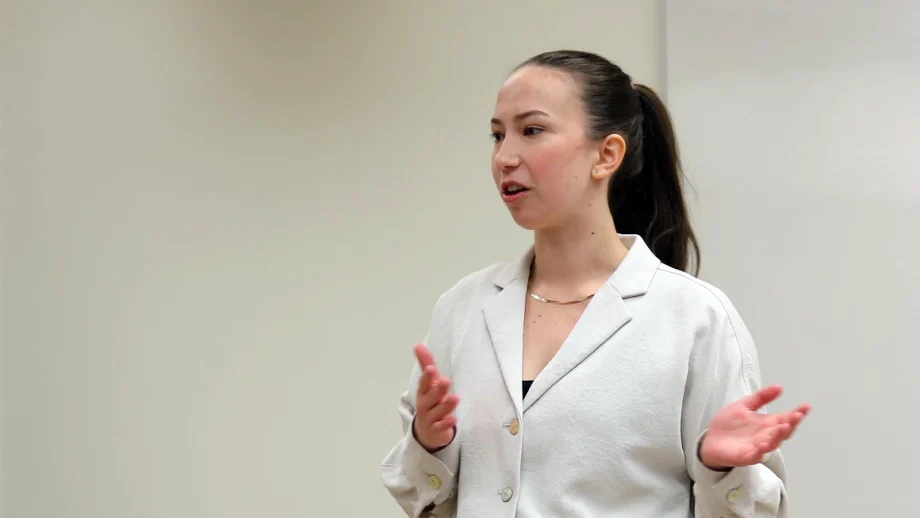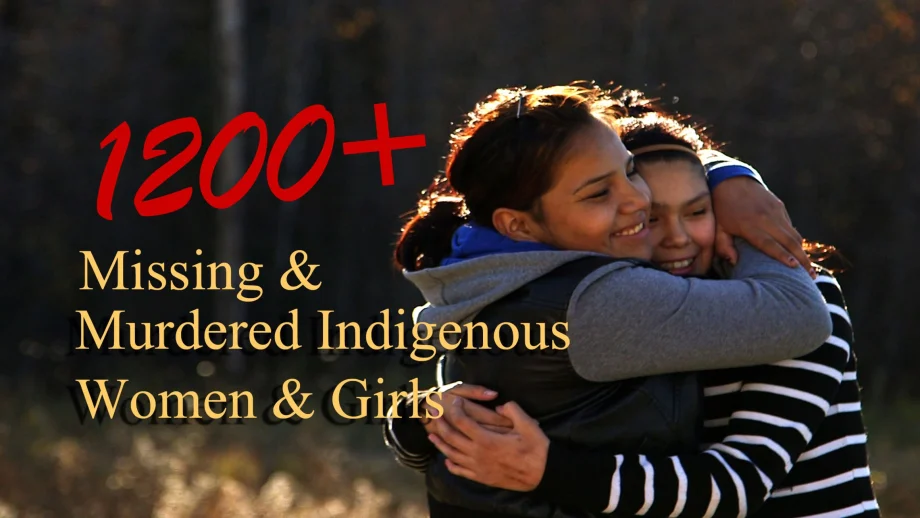The Community-Based Research Training Centre (CBRTC) held its second annual Community-Based Research (CBR) Summer Institute at the Aabijijiwan New Media Lab and Merchants Corner in May. Participants said it had “wonderfully approachable presentations” and “inspirational examples of change-making research.”
The CBRTC is a joint project of the Manitoba Research Alliance and The University of Winnipeg Research Office, that works to build skills in community-based research (CBR), especially for students.
The Summer Institute grew out of student and community-member feedback. “We frequently heard requests for longer and more in-depth workshops on CBR skills, opportunities for networking, and more detailed discussions on the nuances of CBR,” said ,” said Dr. Julie Chamberlain, Assistant Professor in the Department of Urban and Inner-City Studies. “This input shaped our inaugural institute in 2023, and this year we built on that foundation. The 2024 Summer Institute offered a mix of skill building workshops, storytelling, and discussion that received extremely positive feedback.”
It’s very comforting to know there is an institute like this in Winnipeg.
2024 CBR Summer Institute participant
The first day took place at the Aabijijiwan New Media Lab and began with an introduction to CBR and the Summer Institute led by Dr. Julie Chamberlain. This was followed by a keynote presentation from Vanessa Tait at the First Nations Health and Social Secretariat of Manitoba on fostering respectful relationships with First Nations communities. Tait offered a wide-ranging overview of ethical considerations such as relationship building, First Nations governance structures and First Nations principles of ownership, control, access, and possession (OCAP®), to name a few. This was followed by a student panel where folks shared stories of their unique and unfolding pathways into CBR. From undergraduates taking on research assistant positions to graduate students integrating CBR into their thesis work.
Aynslie Hinds led participants through a hands-on workshop on survey design and implementation. Hinds offered a range of insights regarding methodological considerations and practical steps for developing effective surveys. Last year’s participants asked for more time for relationship building, and so the day ended with a two-hour reception.
Dr. Julie Chamberlain and Dr. Christine Mayor shared tips and insights for designing a community-based research project. They covered how to identify community wants, whether we are the right person for a project, and navigating who needs to be involved. This was followed by a panel discussion on ethics, disability, and CBR. Panelists discussed how ethical research requires us to goes beyond the responsibilities laid out in TCPS 2 and university frameworks. Panelists discussed navigating substitute decision making, seeking both individual assent and legal consent from participants, and putting inclusive values into practice.
The Summer Institute concluded with a workshop on knowledge mobilization with Jess Klassen and Megan Marquez. The session covered the experiences of the Manitoba Research Alliance in mobilizing CBR towards policy change, working with your community partners to build organizational buy-in, and step-by-step strategies for creating a knowledge mobilization plan.
“The two days were filled with inspiring speakers, important conversations, and lots of laughter and the CBRTC is so grateful for the passion and enthusiasm of the CBR community. We cannot wait to use the lessons learned from this year to offer something even bigger and better next year!” said Chamberlain.

